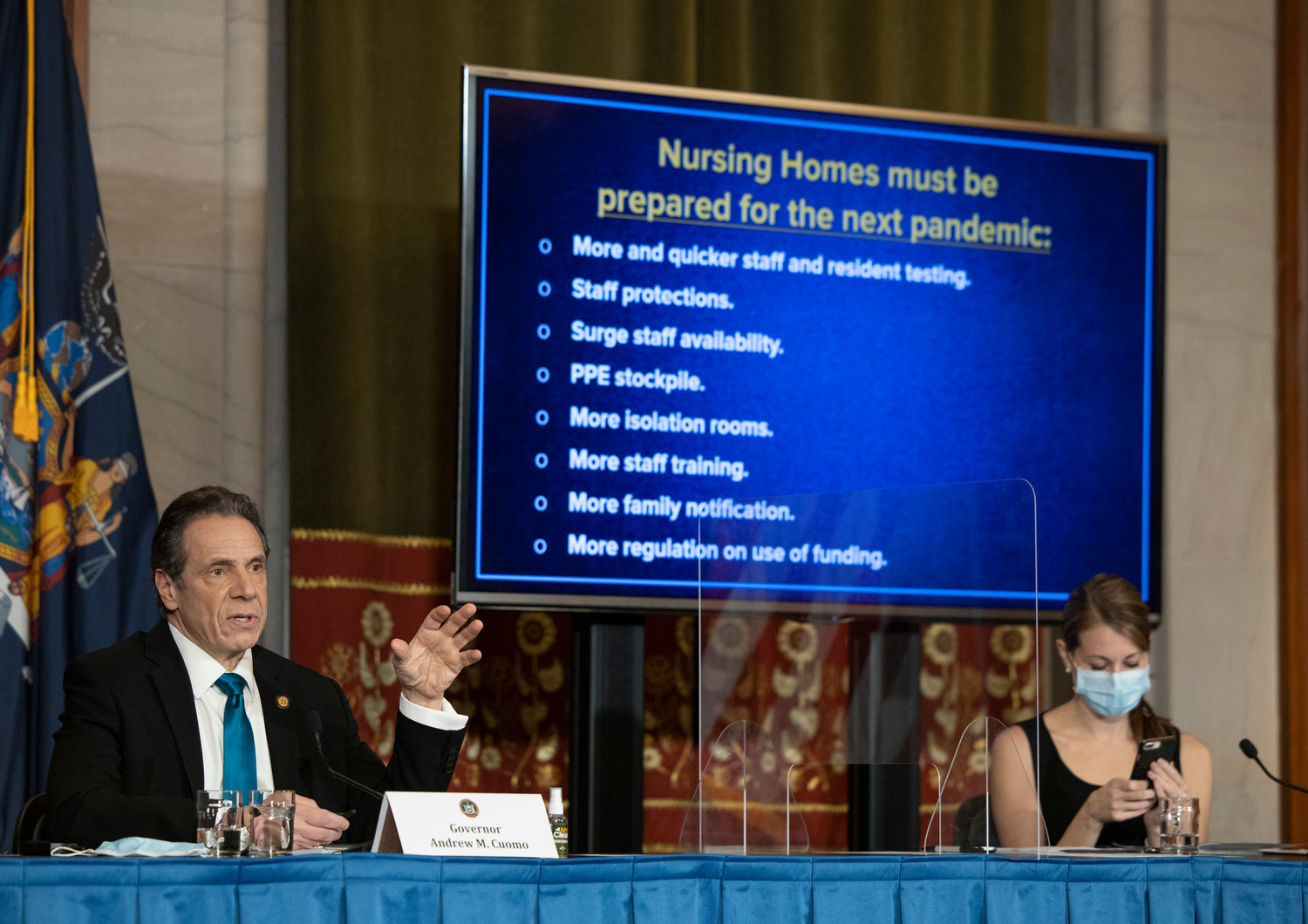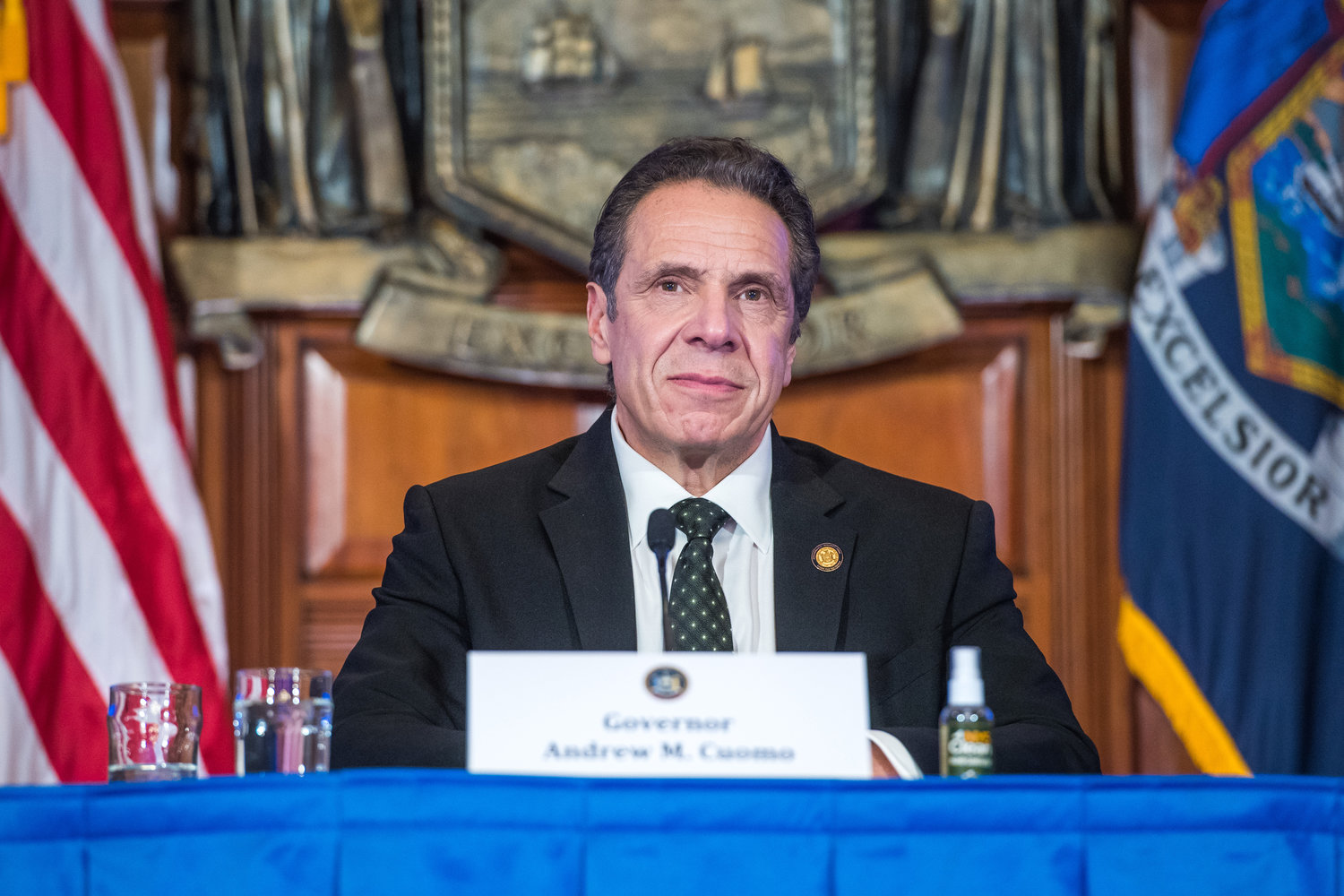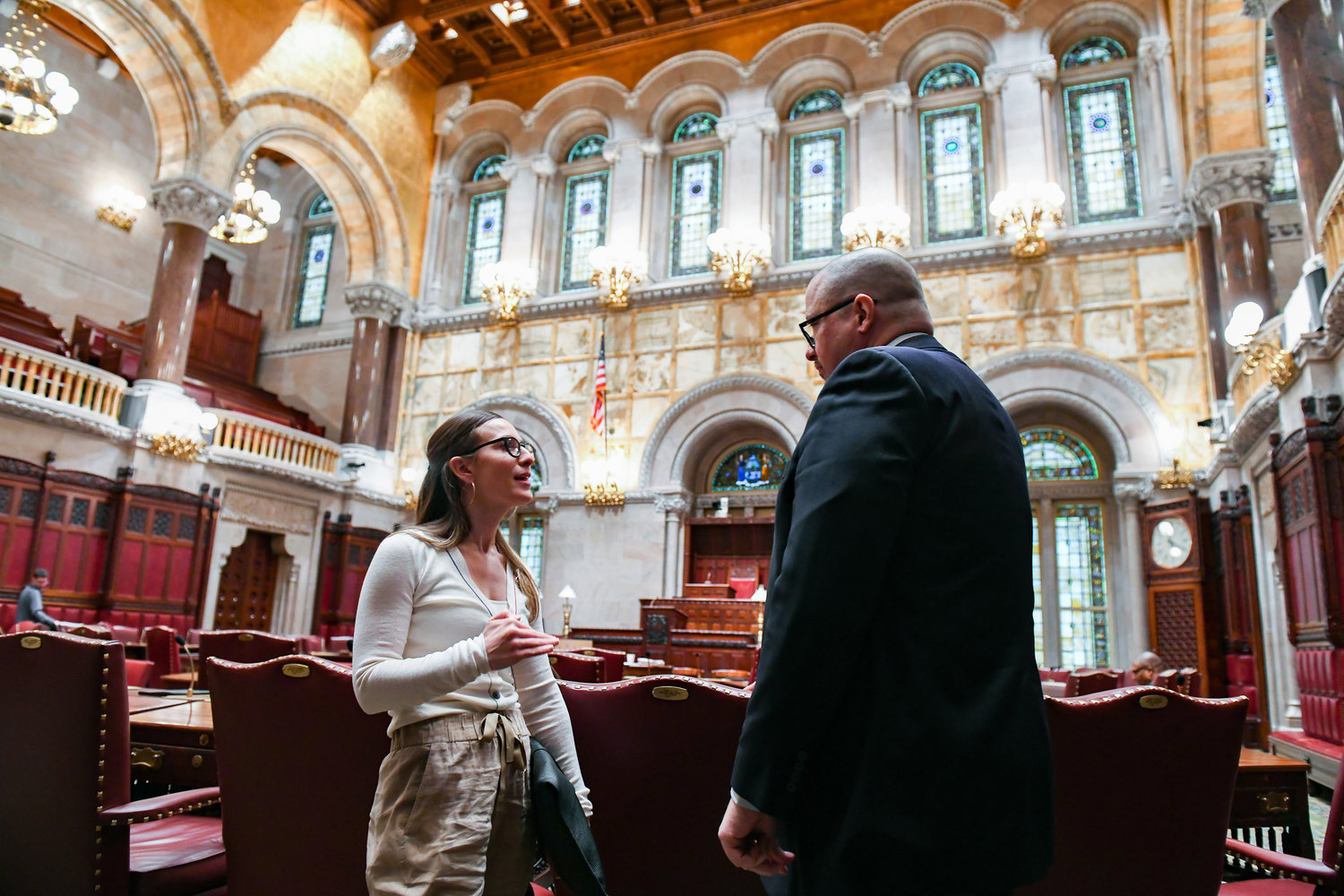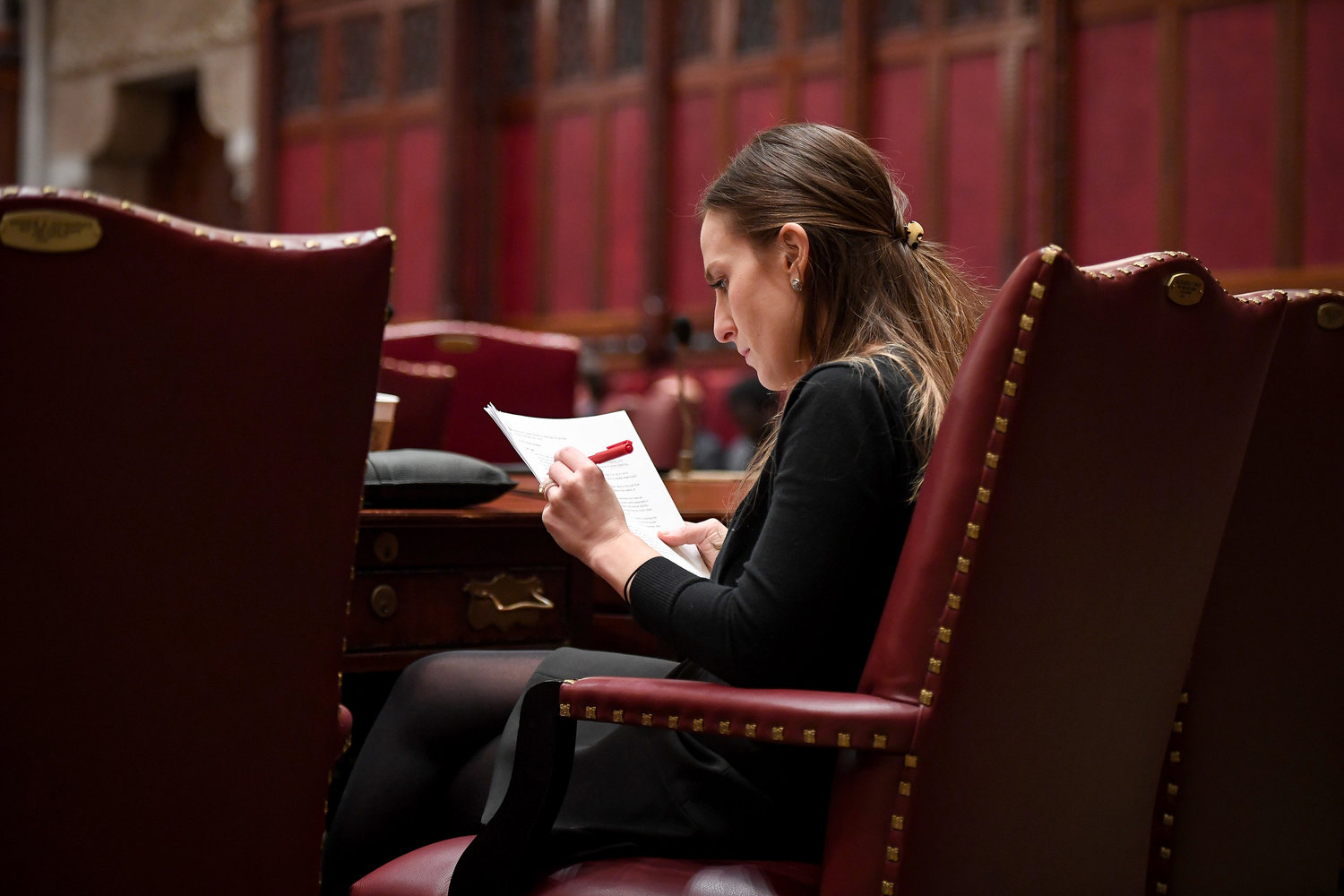Biaggi wants answers from Cuomo
State lawmakers introduce bills to strip governor of his emergency pandemic powers
This time last year, Gov. Andrew Cuomo could seemingly do no wrong.
The coronavirus was rapidly spreading around the country, and New York had become the epicenter of the pandemic. It didn’t help there was a leadership void at the highest level as the Trump administration publicly downplayed the severity of the crisis.
In all of this chaos and uncertainty, Cuomo provided a powerful counterweight. With his daily news conferences, the governor presented the image of a competent leader driven by data and science who understood the danger of the virus, and was actively fighting it. It provided a sense of calm and comfort to people not only in New York, but across the country.
A year later, however, major cracks in Cuomo’s shiny image are starting to show. In recent days, the governor has been hit with at least two allegations of sexual harassment from former members of his administration team. But even before those women stepped forward, Cuomo was under fire for allegedly hiding data on coronavirus deaths in nursing homes.
The smoking gun?
State Attorney General Letitia James unveiled a report last month showing COVID-19 deaths in nursing homes may have been 50 percent higher than what Cuomo originally released. More than 15,000 people have died from the coronavirus in New York’s nursing homes to date.
Soon after, news reports surfaced that Melissa DeRosa, Cuomo’s top aide, admitted to Democratic lawmakers the administration hid the full nursing home death toll as a way to prevent Trump’s Justice Department from opening what she said was a politically motivated investigation into the state.
All of this has been more than enough for state Sen. Alessandra Biaggi, a regular Cuomo critic. She didn’t hesitate to call out the governor over the nursing home data, and introduced legislation she said would hold Cuomo accountable while addressing other underlying problems within nursing homes.
“There are things that the governor has done well, and then there are things that the governor failed at,” Biaggi said.
“And the nursing home scandal is something that he failed at. He and his administration kept those numbers of deaths from the legislature.”
Biaggi joined Assemblyman Ron Kim on a bill they say would repeal emergency powers given to Cuomo last March. Intended to streamline decisions in a time when quick action may have been needed, these powers gave Cuomo the ability to issue directives without first having to consult the legislature. Lawmakers could override any directive at any time through a simple majority vote.
It was a directive from Cuomo, in fact, that required nursing homes to allow patients who had tested positive for the coronavirus to return from hospitals. It was a move widely criticized because of the potential of increasing the disease’s spread. However, Cuomo regularly maintained that nursing homes were only required to readmit residents if they had the ability to safely treat them.
That directive was one of many passed over the past year — something Biaggi said she found to be “problematic for lots of different reasons.”
“But especially as it relates to what we’ve been experiencing in the past six to seven months, which is the lack of transparency and accountability when it comes to questions about decisions that the governor has made,” she said. “Namely, nursing home deaths.”
Making it worse for Biaggi was Cuomo’s move to include blanket immunity for private nursing home administrators and shareholders in the state budget. This has prevented those who lost family members in nursing homes from seeking legal recourse.
Biaggi introduced a second bill intended to repeal that immunity.
Creating more transparency
The senator isn’t alone in her efforts to reform nursing home regulations. Assemblyman Jeffrey Dinowitz introduced his own bill requiring nursing homes to prominently display their “star” ratings — a collection of various reports on quality measures, inspections and staffing.
The bill was initially introduced in 2019, but received renewed attention because of the current nursing home scandal. It recently passed both the Assembly and the senate.
“Obviously COVID brought a lot of attention to it, because of the fact that so many people died in nursing homes,” Dinowitz said. “So, I think that really highlighted the need to do everything we can, in every way that we can, to make sure nursing homes are safe. That information is available.”
Biaggi still believes the first step in addressing the nursing home issue is for an investigation, whether that’s conducted by lawmakers or the attorney general’s office.
Holding an investigation is necessary, Biaggi said, because public hearings will help everyday people understand the situation more thoroughly. It also would lend credibility to any potential punitive action the legislature takes toward Cuomo. But if they find proof of an illegal cover-up and criminal misconduct, then impeachment could be on the table.
Cuomo should be worried about such an investigation, Biaggi said, especially after DeRosa’s comments to state lawmakers were brought to light.
“I read the transcripts,” Biaggi said. “I read those words. The fact that they’re essentially saying that they didn’t know what numbers to give the DOJ because they didn’t want the DOJ to use it against them. That sounds like a cover-up to me. And I don’t know how else to interpret that.”
On the other hand, Dinowitz — who also supports an investigation — is not yet convinced there’s enough evidence to say the governor was involved in such a scheme.
“I’m not going to defend or attack the governor,” he said. “If the governor has done something wrong, I will certainly speak up on it. But I’m not going to assign blame until we know who’s to blame for anything that may have been done wrong. I’m not a jury.”
There are also two federal investigations under way on the federal level by the FBI and Acting U.S. Attorney Seth DuCharme.
Not everyone’s a critic
While it remains a battle in political circles, closer to home, Sharon Mintz isn’t ready to point fingers.
Her mother tested positive for the coronavirus while living at Atria Riverdale. After spending a week in a White Plains hospital, Mintz’s mother was discharged while still testing positive, but was sent to another nursing home.
There she was kept on an isolated floor until she fully recovered.
“If you want to know how I think Cuomo handled the whole thing in general, I think he did a great job with what we were thrown at the time,” Mintz said. “And my biggest problem is the isolation of seniors. So, I don’t really care about the reporting so much.”
Mintz is not alone. Recent polls showed 57 percent of people in New York still approve of Cuomo’s job performance. But a lot of this is just the lingering effects of the positive image Cuomo built up at the beginning of the pandemic, Biaggi said.
“People feel like Gov. Cuomo provided that safe feeling of press conferences in a time when we were terrified,” the senator said. “There was uncertainty and a time when the federal government was not leading at all. But it doesn’t negate the fact that they tried to cover up those numbers, and that the decisions they made led to more nursing home deaths.”















